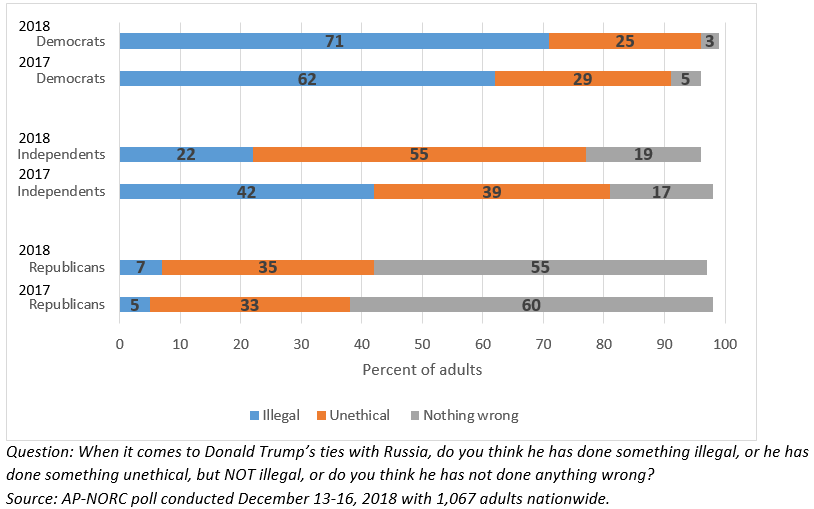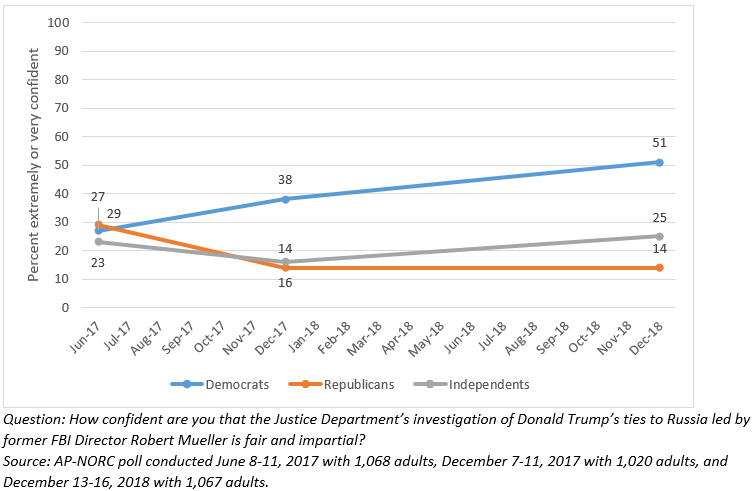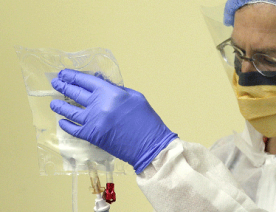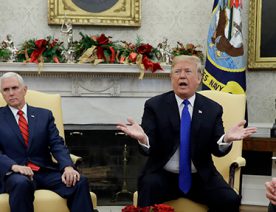
Donald Trump’s connections with Russia are seen as illegal by 38 percent of Americans, while 34 percent say he has acted unethically, but not illegally. Similarly, Trump’s authorization of payments before the 2016 election to silence two women who claimed to have had extramarital affairs with him is considered illegal by 38 percent and unethical by 40 percent.
The public continues to view federal prosecutors’ investigations into Trump and his 2016 presidential campaign through a partisan lens. Seventy-five percent of Democrats are concerned about the Trump campaign’s possible ties to Russia compared with only 10 percent of Republicans. Ninety percent of Democrats say Trump attempted to impede or obstruct the investigation while only 22 percent of Republicans agree.
Federal prosecutors have alleged that Trump directed his personal attorney, Michael Cohen, to make illegal payoffs to two women who claimed to have had an extramarital affair with Trump, implicating the president in the violation of campaign finance laws. Trump has argued that the payments were private transactions with personal funds, not campaign contributions. Forty percent of Americans think the president’s authorization of payments to silence the women’s allegations ahead of the 2016 election was unethical, but only 38 percent think he did anything illegal, and 21 percent say he hasn’t done anything wrong at all.
Regarding Trump’s ties with Russia, 38 percent say he has done something illegal and another 34 percent say these connections are unethical. Twenty-five percent do not think the president has done anything wrong. Democrats are increasingly inclined to regard Trump’s dealings with Russia as illegal, while most independents now see his actions as unethical, and most Republicans continue to say Trump has done nothing wrong.

Fiftey-eight percent say Trump has tried to impede or obstruct the investigation into his ties with Russia, and 40 percent say he has not. While the views of Democrats and Republicans remain largely unchanged since last December, independents have become less inclined to think the president has tried to obstruct justice.
Overall, just 32 percent are extremely or very confident that Robert Mueller’s investigation into the president’s connections with Russia will be fair and impartial, 25 percent are moderately confident and 42 percent have little or no confidence in the fairness of the special counsel’s investigation. Democrats and independents were just as doubtful as Republicans about Mueller’s impartiality in June 2017, but they have grown more confident about the investigation over the past year and a half.

Overall, the public is divided about the prospect of impeachment. If it turns out that Trump obstructed the investigation into his campaign’s ties with Russia, 51 percent say Congress should take steps to remove him from office, and nearly as many, 46 percent, say it should not.
The public is less inclined to favor the president’s removal in connection with his former personal attorney’s payments to prevent the disclosure of allegations of extramarital affairs. If Trump directed Cohen to pay Stormy Daniels and Karen McDougal not to reveal their claims about him, 45 percent say Congress should move toward his removal, while 53 percent are against Congress taking such action.
Forty-two percent of the public approve of how Trump is handling his job and 56 percent disapprove. In an October AP-NORC Center survey, 40 percent approved and 59 percent disapproved.
The nationwide poll was conducted December 13-16, 2018 using the AmeriSpeak® Panel, the probability-based panel of NORC at the University of Chicago. Online and telephone interviews using landlines and cell phones were conducted with 1,067 adults. The margin of sampling error is plus or minus 4.1 percentage points.



